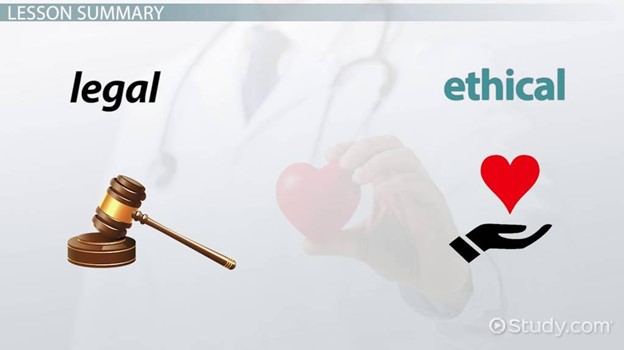Legal and Ethical Aspects of First Aid:
When providing first aid, it is important to be aware of the legal and ethical implications of your actions. Some of the key points are:
- Good Samaritan laws: These are enacted in most states to protect health professionals from legal liability when providing emergency first aid. They require that you follow a reasonable and prudent course of action, that you obtain verbal consent from the victim if possible, and that you do not abandon the victim until someone with comparable or better training takes over.
- Consent: The victim must give verbal permission for you to provide first aid. If the victim is unconscious, the law assumes that they would give consent if they were able. If the victim is a minor, you should obtain consent from a parent or guardian if possible. If not, you can provide first aid based on implied consent.
- Refusal: The victim has the right to refuse first aid or any part of it. You should respect their wishes and document their refusal. You should also inform them of the possible consequences of refusing care.
- Confidentiality: You should respect the privacy of the victim and not disclose any personal or medical information to anyone who is not involved in their care.
- Documentation: You should record your actions and observations in a clear and accurate manner. You should include the date, time, location, victim’s name, consent, assessment findings, interventions, outcomes, and any referrals or follow-up.
You should include the date, time, location, victim's name, consent, assessment findings, interventions, outcomes, and any referrals or follow-up.

Nursing Test Bank
Quiz #1: RN Exams Pharmacology Exams
Quiz #2: RN Exams Medical-Surgical Exams
Quiz #3: RN Exams Fundamentals Exams
Quiz #4: RN Exams Maternal-Newborn Exams
Quiz #5: RN Exams Anatomy and Physiology Exams
Quiz #6: RN Exams Obstetrics and Pediatrics Exams
Quiz #7: RN Exams Fluid and Electrolytes Exams
Quiz #8: RN Exams Community Health Exams
Quiz #9: RN Exams Promoting Health across the lifespan Exams
Quiz #10: RN Exams Multidimensional care Exams
Naxlex Comprehensive Predictor Exams
Quiz #1: Naxlex RN Comprehensive online practice 2019 B with NGN
Quiz #2: Naxlex RN Comprehensive Predictor 2023
Quiz #3: Naxlex RN Comprehensive Predictor 2023 Exit Exam A
Quiz #4: Naxlex HESI Exit LPN Exam
Quiz #5: Naxlex PN Comprehensive Predictor PN 2020
Quiz #6: Naxlex VATI PN Comprehensive Predictor 2020
Quiz #8: Naxlex PN Comprehensive Predictor 2023 - Exam 1
Quiz #10: Naxlex HESI PN Exit exam
Quiz #11: Naxlex HESI PN EXIT Exam 2
Questions on Legal and Ethical Aspects of First Aid:
Correct Answer is B
Explanation
<p>Reason: This action is incorrect because it is unnecessary and inappropriate for a minor injury that does not pose a serious threat to the client's health.</p>
Correct Answer is ["A","E"]
Explanation
<p>Choice E Reason: This choice is correct because if the child's parent or guardian is unavailable, the nurse can provide first aid based on implied consent, assuming that an unconscious person would give consent if they were able.</p>
Correct Answer is C
Explanation
<p>Reason: This response is incorrect because it does not address the client's concern or consent and may sound dismissive or paternalistic.</p>
<p>Reason: This statement is incorrect because giving candy to a fainting victim can cause choking or aspiration, and low blood sugar may not be the cause of fainting.</p>
<p>Reason: This choice is incorrect because it includes unnecessary or irrelevant information that may not affect wound care or outcome.</p>
Search Here
Related Topics
More on Nursing
Free Nursing Study Materials
Access to all study guides and practice questions for nursing for free.
- Free Nursing Study Trials
- Free Nursing Video tutorials
- Free Nursing Practice Tests
- Free Exam and Study Modes
- Free Nursing Revision Quizlets
